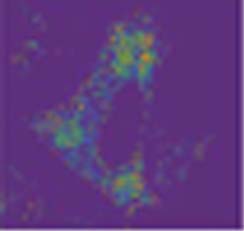
The human immune system is a truly amazing constellation of responses to attacks from outside the body. It could defend you against millions of bacteria, microbes, viruses, toxins and parasites that would invade your body. However, there are cases where the immune response to innocuous substances is inappropriate and over-reactive, leading to diseases such as allergies and arthritics.
A research team headed by Prof. Pei Gang from the Institute of Biochemistry and Cell Biology under the CAS Shanghai Institutes for Biological Sciences has found a new mechanism to inhibit the over-reactive immune responses. Their work entitled "Association of β-arrestin and TRAF6 negatively regulates Toll-like receptor-interleukin 1 receptor signaling" was reported at the recent issue of
Nature Immunology.
The team discovered that a protein called β-arrestins could directly interact with tumor necrosis factor receptor-associated factor 6 (TRAF6), an important signaling mediator in immune responses. It could negatively regulate the activation of TRAF6 to NF-kB and AP-1, which are transcriptional activators of innate immunity, and the appearance of inflationary factors. The discovery reveals not only a new regulation mechanism of immune responses, but also a possible target of new drugs against over-reactive immunologic diseases.
Their work has been jointly supported by the Fund for Creative Research Groups of the National Natural Science Foundation of China, National Basic Research Program (dubbed 973 Program) and Knowledge Innovation Program of CAS.





